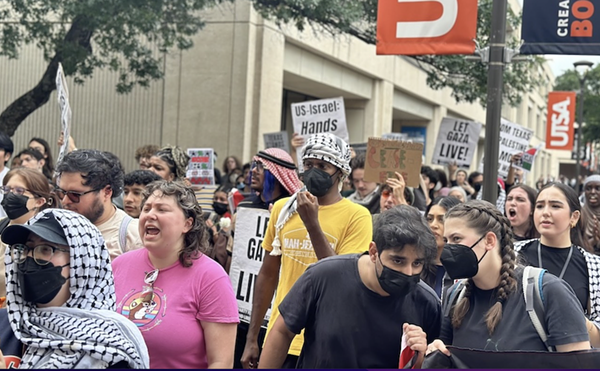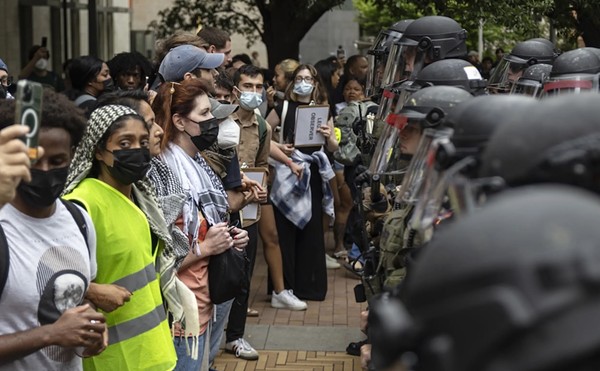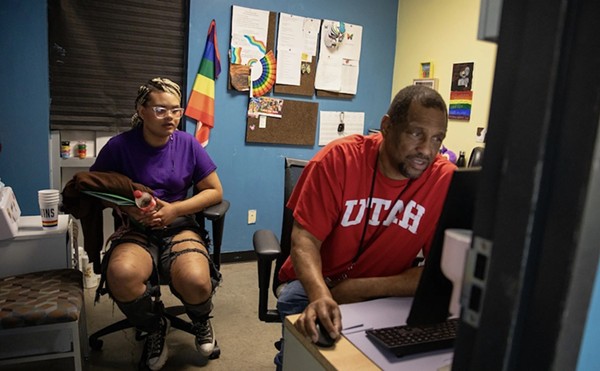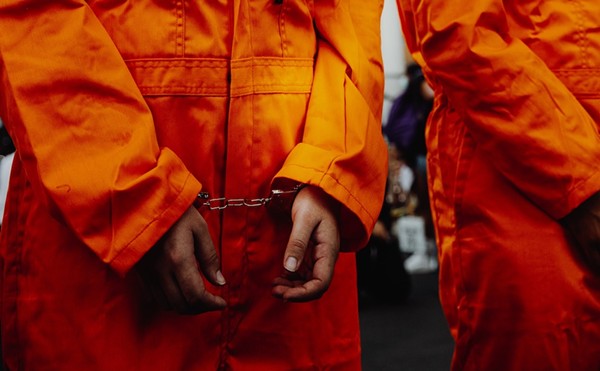
Nearly 160 baboons in captivity at San Antonio's Texas Biomedical Research Institute (TBRI) suffered amputations due to frostbite from February's disastrous winter storm, according to documents filed with federal regulators.
A March 15 noncompliance report from the National Institutes of Health’s Office of Laboratory Animal Welfare noted that the storm caused frostbite to 159 of the federally funded lab's baboons. "Several lost digits, but over 100 had amputation surgery due to tail frostbite," according to the document.
People for the Ethical Treatment of Animals (PETA) says the filings demonstrate that TBRI provided insufficient shelter for the primates in violation of federal animal welfare laws. On Tuesday, it sent a letter to the U.S. Department of Agriculture (USDA) Animal and Plant Health Inspection Service asking it to levy penalties. The animal rights group noted that the 159 injured baboons represented roughly 15% of the lab's total colony.
"For us, it was astonishing that [TBRI] failed to do something as fundamental as making sure these animals had adequate shelter during a winter storm," said Lisa Jones-Engel, PETA's senior science adviser on primate experimentation. "If you can't provide shelter for animals in your care, frankly, it makes me wonder what else you can't do properly."
PETA obtained the federal documents through the Freedom of Information Act and shared them with the Current earlier this week.
2021 05 20 TBRI Documents by sanford nowlin on Scribd
In an emailed statement, TBRI said its federal filings show that it took extreme steps to protect the baboons during the unprecedented storm, which also claimed hundreds of human lives. Additionally, the storm devastated the Leon Springs-based animal sanctuary Primarily Primates, which suffered 12 animal deaths, including that of its oldest chimp.
"The Department of Health and Human Services noted that the Institute’s efforts, which included supplemental heat, round-the-clock observations with more than 50 staff members sleeping overnight on campus to care for animals throughout the week, were 'consistent with regulatory philosophy ... and actions taken to resolve the issue were appropriate,'" said Lisa Cruz, TBRI's vice president of communications. "The Department did not find any need for further action."
A NIH spokeswoman said via email that TBRI "appropriately handled" the incident it reported so the agency has taken no disciplinary action. A spokesman for the USDA confirmed that it received PETA's letter and is now reviewing it.
Located on San Antonio's far West Side, TBRI maintains a colony of 2,500 primates — also including marmosets, macaques and chimpanzees — which it uses to test disease treatments.
Over the past decade, the USDA has required TBRI to alter its care policies several times after the deaths of primates in its care. In 2012, the USDA imposed a $25,714 fine on the lab for three violations of the Animal Welfare Act, the Express-News reports. At the time, PETA said the fine stemmed from a complaint it initiated.
In TBRI's statement on the recent animal injuries, Cruz said that the frostbite suffered by the baboons wasn't life-threatening and received "immediate and exceptional" veterinary care, adding that "each animal has recovered without complications."
Jones-Engel, a biological anthropologist and primatologist, disputes that last claim, however. Baboons need their digits for foraging, feeding and grooming, the latter being an important part of socialization in their colonies. What's more, the animals use their tails to project their status in the group.
"These animals suffered. You didn't do your job," Jones-Engel said, rhetorically addressing TBRI. "The USDA needs to step in and make that clear."
Stay on top of San Antonio news and views. Sign up for our Weekly Headlines Newsletter.



















